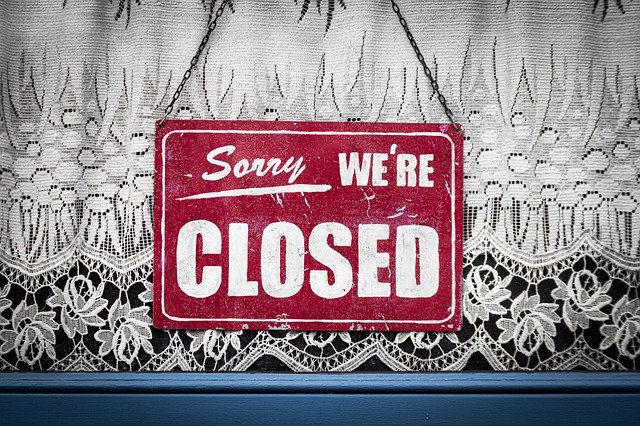“With a sharp decline in travel demand, nine times worse than September 11 and with lower room occupancy than during the Great Depression, our small business owners are struggling to survive,” said American Hotel and Lodging Association President and CEO Chip Rogers, commenting on massive hotels closings that may be the future of hospitality because of the wave of financial catastrophes due to the coronavirus.
“The human toll on our industry has been equally as devastating. Right now, many hotels are struggling to service their debt and keep their lights on, especially those with Commercial Mortgage-Backed Securities (CMBS) loans as they have been unable to obtain urgently-needed debt relief. Without action to shore up commercial debt, especially CMBS loans, the hotel industry will experience mass foreclosures and permanent job losses which will snowball into a larger commercial real estate crisis impacting other segments of the economy,” Rogers added.
The last few months have been met with an unprecedented rise in delinquencies in the CMBS market. Like the broader market, the majority of the delinquent balance for these MSAs is on account of the delinquent loans in the lodging and retail sectors, according to TREPP, June 25, 2020.
Last week, the American Hotel & Lodging Association (AHLA), Asian American Hotel Association (AAHOA) Latino Hotel Association (LHA), and National Association of Black Hotel Owners and Developers (NABHOOD) called on the Federal Reserve and Treasury to adjust the creditworthiness evaluation requirements for the Main Street Lending Facility to ensure that hotels and other asset-based borrowers are able to utilize this vital liquidity to keep people employed and survive the COVID-19 crisis.
In a bipartisan congressional letter to the Federal Reserve and Treasury on June 22, 2020, it states: “Without a long-term relief plan in the face of an elongated crisis, CMBS borrowers could face a historic wave of foreclosures starting this fall, impacting local communities and destroying jobs for Americans across the country. Further, surrounding property values and state and local tax revenues will plummet, worsening the recession, and removing critical revenue from local communities…We request the Department of the Treasury and the Federal Reserve urgently consider targeted economic support to bridge the temporary liquidity deficiencies facing commercial real estate borrowers created by this unforeseen crisis.”
U.S. Congressman Van Taylor (R-Texas) said in a June 23, 2020 press release: “Millions of jobs depend on keeping these properties open. For example, 8.3 million jobs throughout the United States and more than 600,000 in Texas are supported by the hotel industry alone. These industries don’t need a bailout, but they do need flexibility and support to keep their doors open, provide millions of jobs in communities across the country, and drive their local economies.”
“Nearly half of commercial rents were not paid last month, and many businesses will not be able to pay their rent for the foreseeable future. History shows us this will likely result in a wave of foreclosures, massive layoffs, and less revenue to already cash-strapped state and local governments. We must do everything we can to protect the broader economy from this devastating chain reaction,” said U.S. Representative Denny Heck (D-WA) in a June 23, 2020 press release.
U.S. Representative Al Lawson (D-Fl) said in a June 23, 2020 press release: “COVID-19 is causing many of our industries to experience major financial hits, and the commercial real estate is no exception. Without immediate action from our financial institutions, we may see unrecoverable losses to these businesses. We are asking Secretary Mnuchin and Chairman Powell to take necessary measures to ensure this industry has the capability to survive this global pandemic.”
According to the Wall Street Journal (June 4, 2020), hotel owners seeking a break on their monthly payments say they haven’t had much success negotiating with Wall Street firms, which have an obligation to recover as much money as possible for investors. Just 20% of hotel owners whose loans had been packaged and sold to investors have been able to adjust payments in some form during the pandemic, versus 91% of hotel owners who borrowed from banks, according to a survey by the American Hotel and Lodging Association.
The Associated Press reported the same on June 25, 2020, saying that commercial mortgage-backed securities loans like the one Gaekwad has for the Holiday Inn are packaged in a trust. Investors then purchase bonds from the trust using properties like a hotel as collateral. The loans are attractive to borrowers because they typically offer lower rates and longer terms. About 20% of hotels across the U.S. use these loans and they represent close to a third of all debt in the hotel industry, according to the American Hotel and Lodging Association. Unlike banks, which have been more flexible in renegotiating loan terms to help them through the tough times, hotel owners like Gaekwad say it has been much more difficult to get any forbearance from representatives of bondholders, and they worry that their businesses may not survive because of the lack of relief.
Source: eTN






